- For Starters
- Posts
- Build a business with soul
Build a business with soul
This is For Starters #31
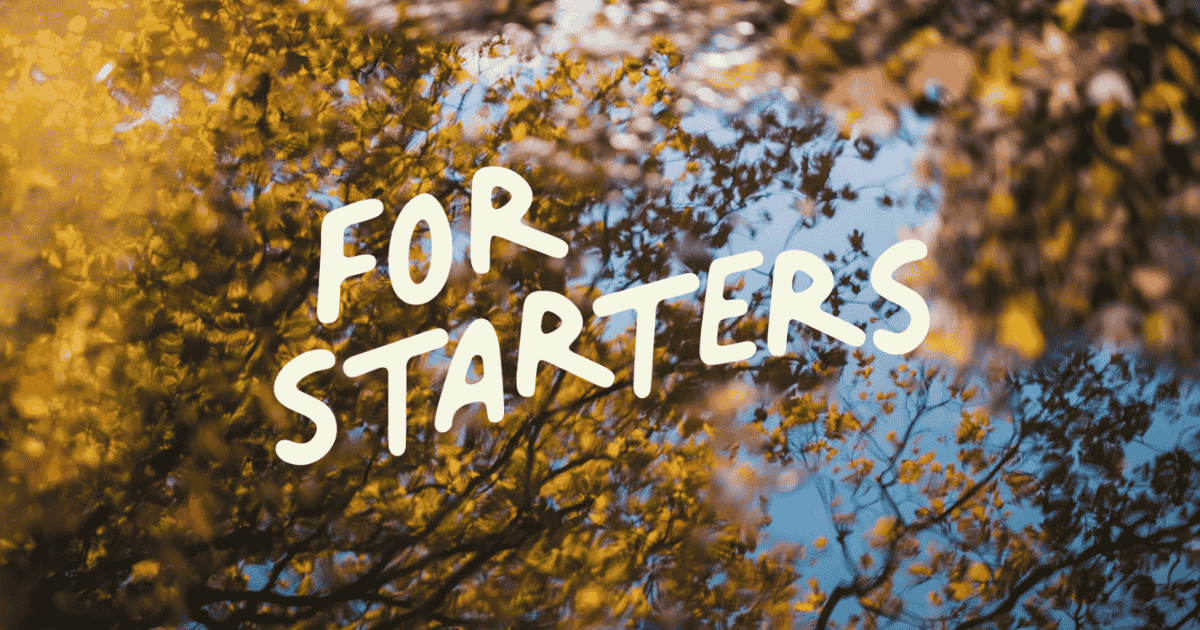
For Starters is the essential weekly briefing for the next generation of small business owners. Inspiration and ideas, every Friday – for free. It’s curated by Danny Giacopelli, formerly of Monocle and Courier magazines. Enjoy!
Hey starter! Read on for…
Inspiration ➠ Bath oil & olive oil
Advice ➠ The drugstore cowboy
Ideas ➠ Swap rubbish for food
Tools ➠ AI slang to know
Community ➠ Subscriber wins
➠ Get inspired
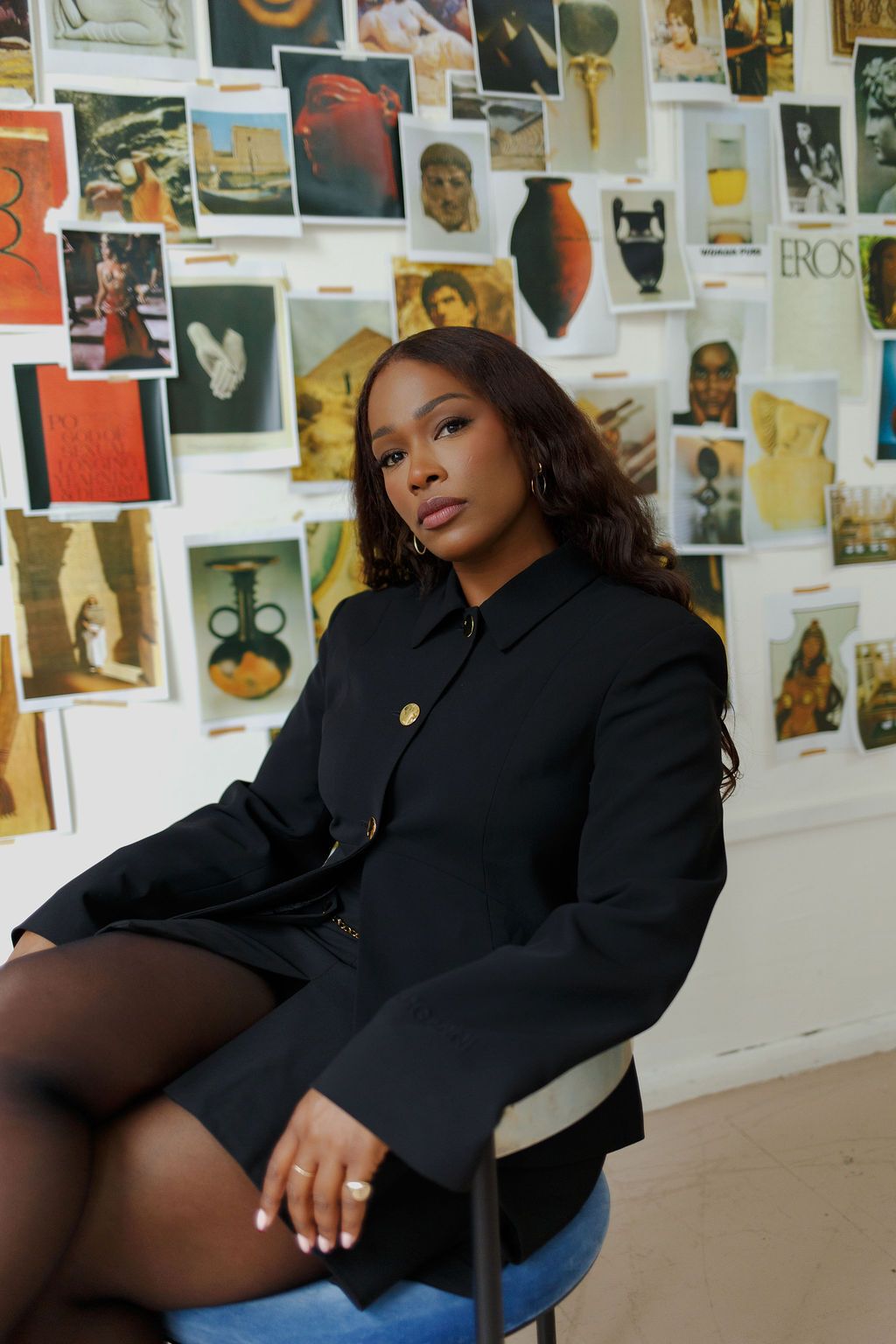
Sharmadean Reid, founder of 39BC
1. Her Roman Empire. Entrepreneur Sharmadean Reid MBE – author of the book New Methods for Women and the founder of WAH Nails, Beautystack and Stack World – has just launched a new company called 39BC, the debut collection of which are fragrance shower oils drawing on the stories and times of Cleopatra and Mark Antony.
The brand itself is all about the ritual of bathing, with each collection focused on a different time period:
“39BC begins in Egypt, in the year 39 BC, the peak of Cleopatra’s reign, where bathing was both ritual and rule. But each collection travels beyond Alexandria, tracing the global histories of scent, water, and ceremony across time. From Yayoi-era Japan to the Maroon strongholds of the Caribbean, from West African rainforests to the volcanic baths of Mesoamerica, every volume is rooted in a specific place and era. Together, they form a sensory atlas of how humans have cleansed, adorned, and remembered themselves through water.”
→ This is smart positioning – and the lush imagery and storytelling rooted in ancient history, but made modern, are just 🤌 🎯

2. Pressing matters. Speaking of oil… When Australian Harry Labrakis couldn’t find the kind of minimal intervention olive oil he grew up with on his family’s 200 year-old grove in Laconia, in the Southern Peloponnese of Greece, he did the obvious starter thing: teamed up with his partner Morgan, then a burned-out fashion stylist, and started a brand, Kyveli, named after their goddaughter. The olives are hand-picked, cold-extracted within hours, and bottled in dark glass before getting shipped to your door so you can pour it on literally everything. Maybe even bathe in it. 🫒
→ Part nostalgia, part hustle, part family tradition, and proof that sometimes a biz idea can just be… bring the good shit over (and share it).
3. The other Florence renaissance. When Natalie Chanin moved from NYC back to her hometown – Florence, Alabama – two decades ago and started hand-stitching clothes at her kitchen table, she sparked a movement: her brand Alabama Chanin championed slow, local fashion (the collection is “seed-to-shelf” and organic), she made a film capturing the voices of local textile workers called Stitch, and she later started Project Threadways, a nonprofit preserving that textile history while connecting today’s makers. 🧵
→ Reading this recent profile of her, I was struck by just how much of a difference one person can make by following their passion. And how much a small town (~43,000 people) can punch above its weight.
—
➠ Starter wisdom
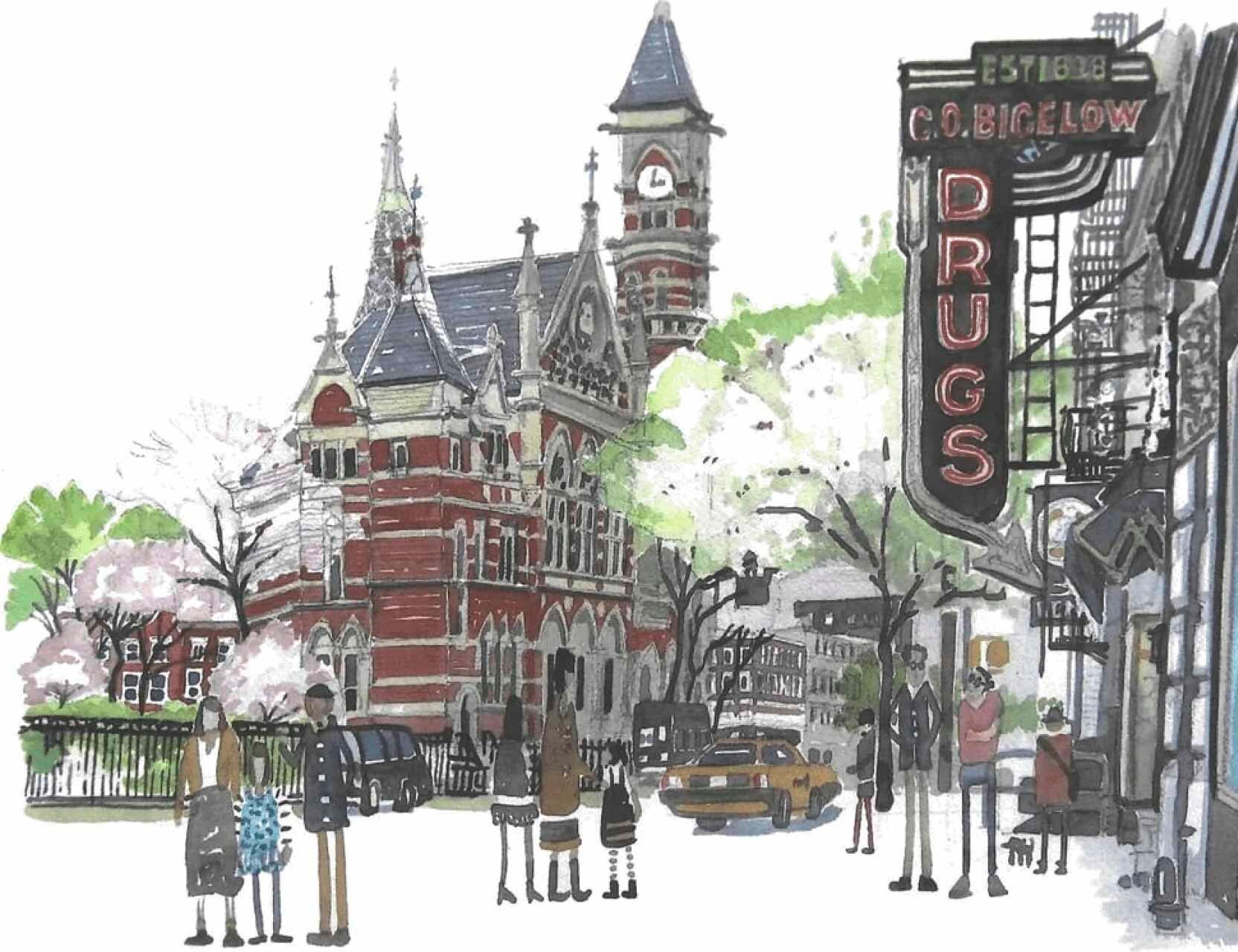
Not many pharmacies can count Mark Twain, Thomas Edison and Eleanor Roosevelt among their customers. But C.O. Bigelow, founded in 1838 in New York City’s Greenwich Village, isn’t just any pharmacy.
Owner Alec Ginsberg is the fourth generation of his family to keep the lights on at America’s oldest apothecary. Below, Alec spoke with For Starters about what it’s like running a nearly 200-year-old small business.
Hey Alec, what’s the story behind C.O. Bigelow?
We’re the oldest apothecary in America. Not the first one ever founded, but the oldest continuously operating. We were founded in 1838 as The Village Apothecary Shoppe by a doctor from Vermont who moved to New York called Dr. Galen Hunter. And through the years it was passed down to different employees.
Then in the late 1800s, a guy named Clarence Otis Bigelow bought the store. Clarence was a pharmacist and a very wealthy guy in the late 1800s. We were actually in the building next door back then – this building didn’t exist yet. In 1902 he built the building that we’re in now and renamed the shop C.O. Bigelow.
Paint us a picture of how the business worked back then.
If you think back to the 1800s, modern medicine didn't really exist. It wasn’t like you went to the doctor and he had a whole range of commercially-produced medicines to write a prescription for, and you brought that prescription to the pharmacy. Everything had to be made by hand and there were recipes.
So imagine you lived uptown. You had to take a 2-hour horse and carriage ride down to C.O. Bigelow, show your arm to the pharmacist and say, “I have itchy skin.” Then they’d be like, “Give me three hours to make my formula.” So you’d wait there because you weren’t going to go all the way home and come back. Finally, you’d get it and you’d travel the two hours home. It could be a full day’s journey to get medicine.
But Clarence Bigelow was a brilliant marketer. He said, if we design everything beautifully and make the experience amazing, it could take us to the next level. Instead of just here is your cream, he wanted you to return home with your medicine wrapped and stamped beautifully, like a gift.
If you look at our website, all the designs are still Clarence’s! That was the ethos of Bigelow and how it became famous. An elevated experience.
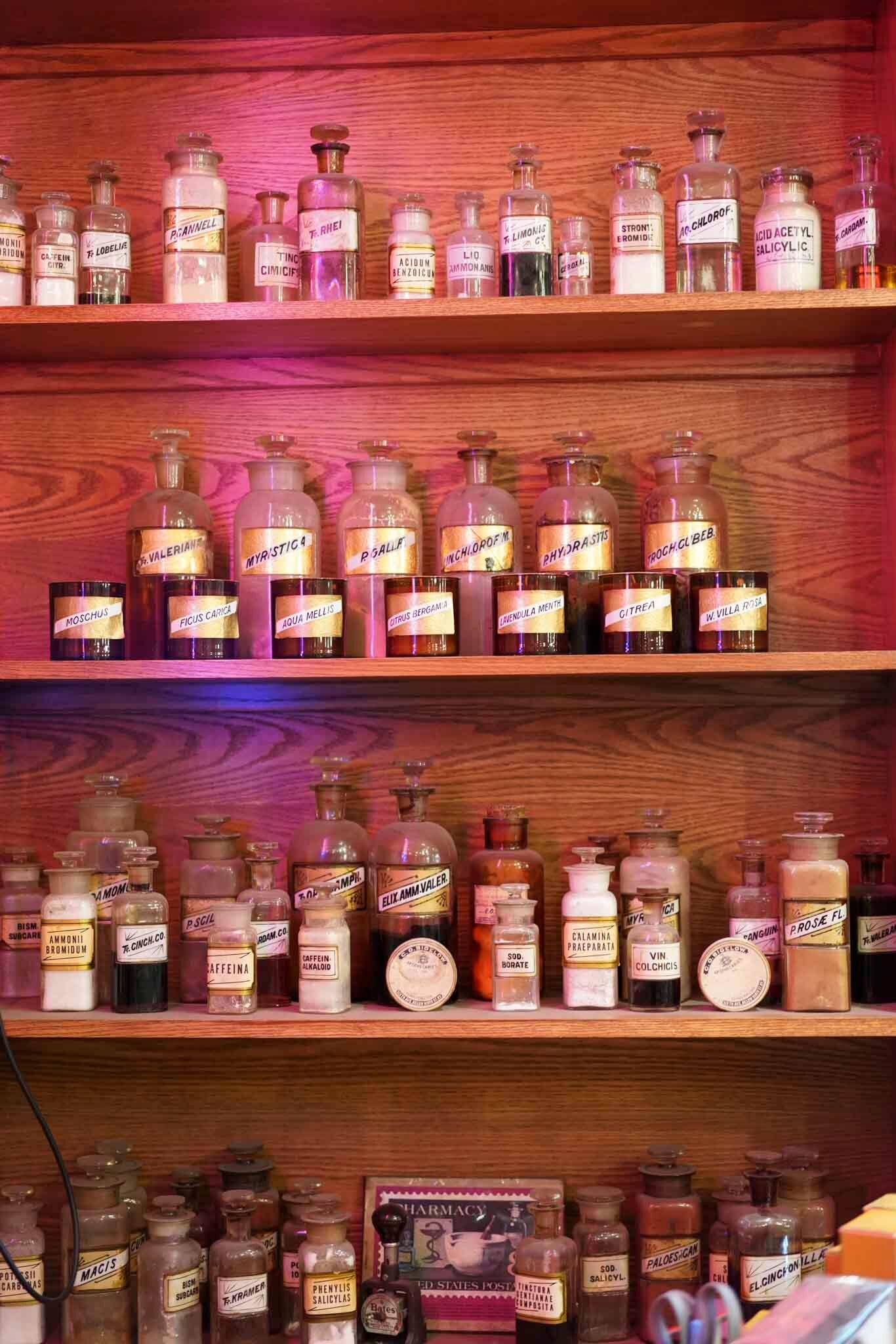
Something for everyone.
When did your family get involved?
During the Great Depression, the store had become very rundown just like everything in New York City. My great-grandfather moved here from Poland during the war and in 1939 he bought the store while it was on the verge of bankruptcy. My grandfather eventually took it over, then my father, then me.
As of August 15th it’s been nine years I’ve been here full-time. But I’ve been working in the store doing deliveries, cashier, stock room, everything since I was a kid. And me, my father, my grandfather and great-grandfather have all been pharmacists.
When you’re in competition with other pharmacies or with the big chains like CVS, Rite Aid and Walgreens, you want to go above and beyond with a personal, human touch. That’s the heart of Bigelow. And so now, even though independent pharmacies in America are kind of gone, we’re still one of the few that exist because people will pay and be loyal to this kind of service, and to a small business family atmosphere.
In New York those big chains are everywhere, but they’re ugly retail environments. Yet here you’ve got this beautiful, considered, curated place...
I like to tell people who start working for me that in New York City there are very few places left where you walk in and the people that work there know your name and you know their name. If anything it’s your corner bodega or coffee shop. C.O. Bigelow fills that space, too. We’ve had the same regulars for years. I’ve been here since I was a kid and the people who work here have been here 10, 20, 30 years. People walk in and they’re yelling to the back, like, “Did you catch the Yankee game last night?” It’s like a Spike Lee movie. That’s what I love about this place. It’s a real New York spot.
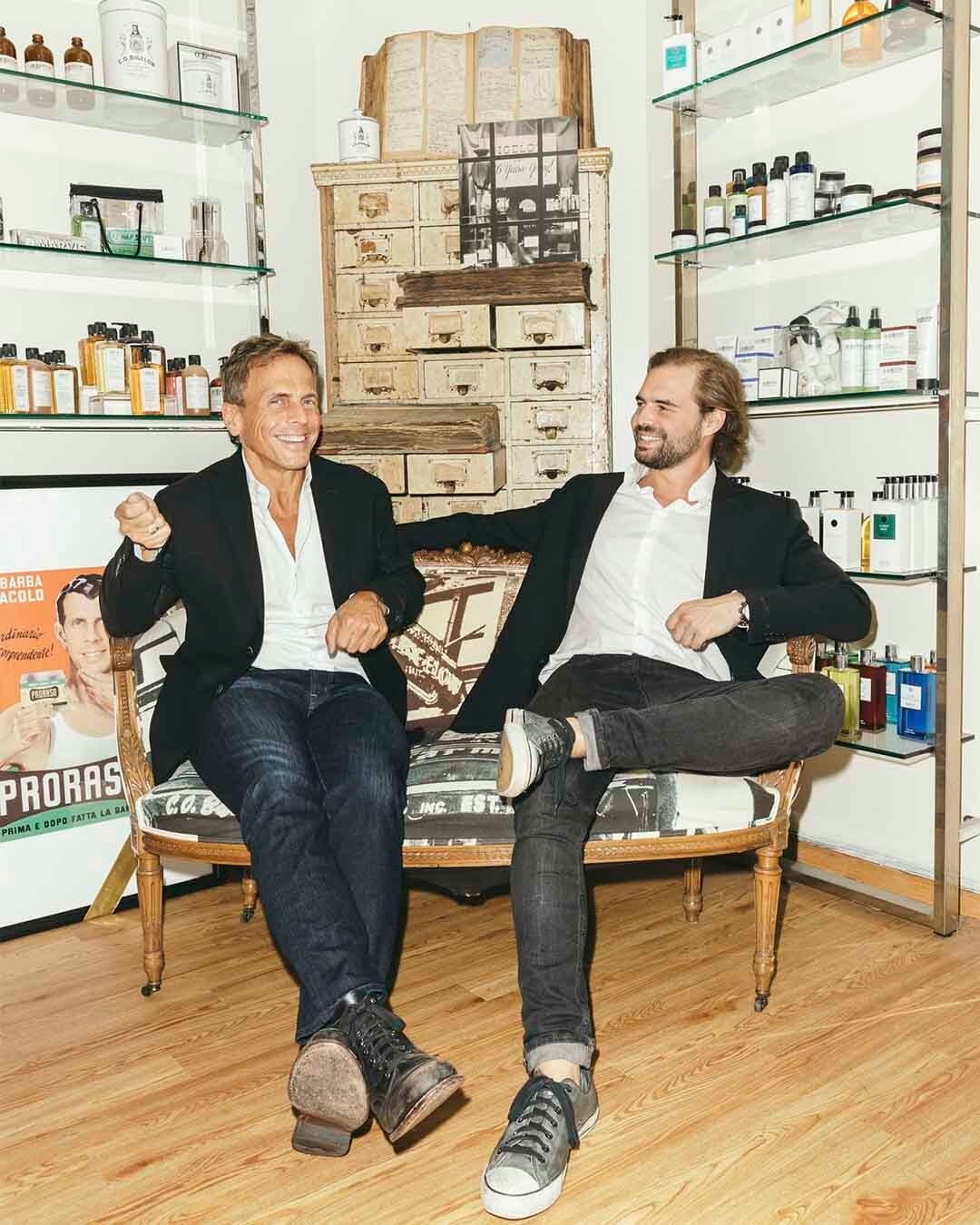
Alec (R) and his father Ian.
How has C.O. Bigelow’s revenue streams evolved over the years?
Everybody in my family who has come to work here has done something to elevate the store. My grandfather expanded the pharmacy business. He opened up stores (now closed) in hotels and on Roosevelt Island. My father realized we had an incredible archive of products and art and he built a brand out of it. He developed our product line and got us back into the hotel business with amenities. We also do a wholesale distribution of certain brands in America. Marvis toothpaste is our brand in the US. We now have a couple brands like that.
When I came in, I knew I had to figure out something that grows the business in a similar way. I had to leave my mark. I knew that the pharmacy business has been changing so much. Because of GLP-1s and Aderall and the opioid epidemic and all the TV shows that came out of it like Dopesick, people were suddenly really fascinated by big pharma and healthcare. And yet, despite our client base being some of the most successful people in New York, as brilliant as they are, they don’t understand much about their healthcare.
My job already involves explaining these complex things to them. So I was like, well, I can do this on a grander scale. The pharmacy business itself is changing and that’s why a lot of pharmacies are closing. It’s very difficult to make money in pharmacy. But as I figure that out, one way to grow the Bigelow brand is by filling this niche of educating the public at a time where people really need to be more aware of what’s going on in healthcare.
So that’s how your newsletter, Drugstore Cowboy, came about?
Exactly. I’m already doing this everyday. Half a pharmacist’s job – in the US at least – is someone coming in and saying, “Oh, it’s not covered by insurance?” or “Why is my medication $900?” If everybody in the US hates the healthcare system, it’s only going to change when people really understand what’s going on behind the scenes. So I realized I had an opportunity to do that in a fun way. It’s a very intimidating subject, but there was an opportunity for me to put it in bite-sized digestible bits of information for people.
We live in a culture where ‘founder-led brands’ is a big thing. Founders need to have a presence and a personality. And while I don’t want to become an influencer, it doesn’t hurt to keep putting myself out there. Bigelow is based on trust and honesty and the fact that I’m being super honest about everything going on can only help grow the brand.
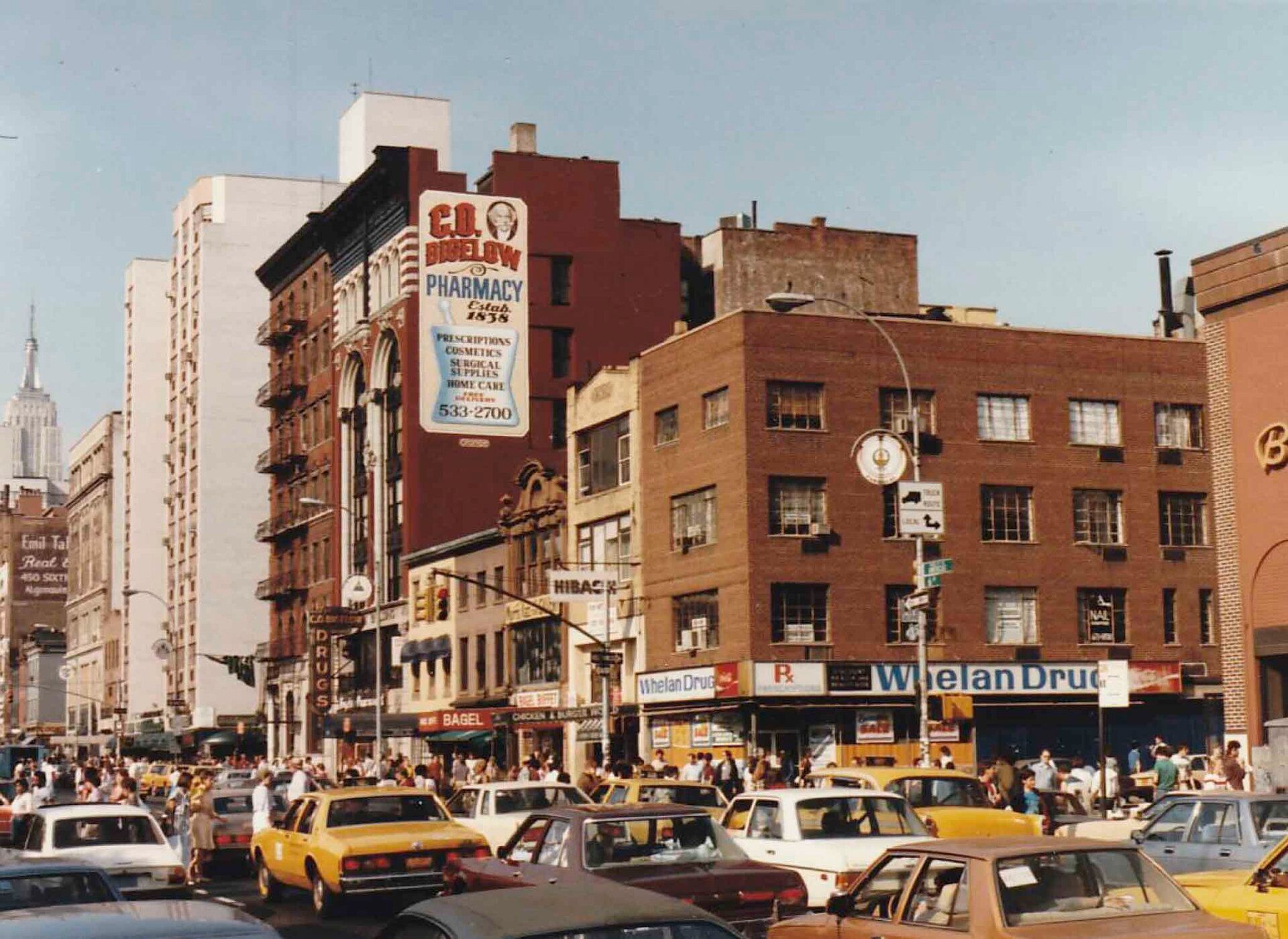
Spot that sign?
Alec’s 4 tips for clever starters
#1. Build a business with soul. “The world is shifting so digitally in every sense. But there’s still room – and people still want – real, physical places that don’t feel sterile. Where you come in and they know your name and you know their name. If you build a place like that, a place with soul, people will rally around it. People love their neighbourhood spots. They protect places that are uniquely their own, businesses that try to do good for their local community. I’m sure there are plenty of people reading this who are thinking about starting digital businesses and saying, let’s grow something huge. But there are also a lot of people who want to open up a neighbourhood spot. You don’t have to always think enormous.”
#2. Go against the grain. “For all the starters out there, no matter what you build, go the opposite way of where everybody else is going. Don’t do self-checkout. Don’t have iPads all around the place. For a while we all went away from the human touch and we’re still going in that direction because of AI, but that just means that there’s room for people who do other things really well to make a huge difference.”
#3. The experience, not just the sale. “People come into Bigelow everyday and they’re like “Wow, we didn't know a place like this existed.” Not because it’s cool inside or our product selection, but because I have real salespeople who are passionate about the products. I involve them in the decisions of what we carry and they give honest, real advice. I tell all my employees here: I don’t care if people leave having bought something. I care if they leave having a good experience. Give them samples of stuff. Tell them to go home, try these three things, and come back later and tell me which one you liked, and we’ll work from there.”
#4. Make people feel good. “If your business has a soul and if there are employees there who care and if you treat them like family so that they have pride in where they’re working, through osmosis that goes to the customers. There are huge opportunities all over for people to open up businesses like this – ones that touch people and actually make them feel good.”
—
➠ Good idea!
Paying with rubbish → “Garbage cafes” are springing up across India, within which people can trade a kilogram of plastic waste in exchange for a full meal: rice, two veggie curries, dal, roti, salad & pickles.
—
➠ Toolbox
🛠️ Resources
8 slang terms every creative should know in the AI era.
📚️ Reads
The Rise of Luxury Clothing Made Specifically for the End of the World. Esquire
Is the bubble bursting? The Honest Broker
Michael Rosen’s guide to having a happier day: listen to music, get a good night’s sleep ... and add raisins to ice-cream. Guardian
The Indigenous Artist Making Dazzling Labubu Regalia. Hyperallergic
This Singaporean founder built kiosks that refill household products, they’re now in 14 spots. VulcanPost
🧠 Findings
1 in 3 → A third of entrepreneurs may be dyslexic. Pretty astounding, if true.
53% → The percentage of Gen Alpha that want to be a YouTuber (32%) or TikTok creator (21%). Entrepreneur snagged 5th place at 17%.
I’d say ‘creator’ overlaps with entrepreneur, sorta/kinda. And also… I wanted to be Indiana Jones when I was a kid and now I’m writing this newsletter. A lot can happen in 20-30 years! Tough to read too much into this.
Case in point…
“The youngest children in the Gen Alpha range—which spans from children born after 2010, up until today—gave unpredictable answers like alligator, snow plow man, and Lady Gaga backup dancer. Multiple kids even espoused their dream career: being a tree.”🌲
🙃 Fun
People are going bananas about the ‘sensory overload’ of the newly designed JW Anderson website.
This one-of-a-kind 4-seater bench from furniture designer Shivangi Vasudeva is gorgeous. You should buy it.
—
➠ Our community
1. For Starters subscriber Richie Hume, founder of Glasgow-based indie clothing brand 1 of 100 – known for its superb collabs with artists, musicians & designers – is teaming up with the legendary Beta Band for a highly limited-edition t-shirt design. Only 100 will be made (you choose the number from 1-100). Richie says make sure you’re on the mailing list to be first in line when it drops. They’re gonna go fast…
2. And subscriber Alice Katter, founder of Out of Office, has just launched a new 7-week cohort to help people reimagine how they work and live – and “build a work/life that feels energizing and inspiring.” Check it out here.
—